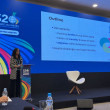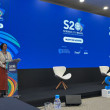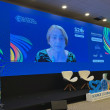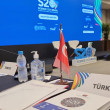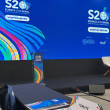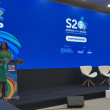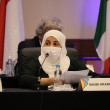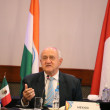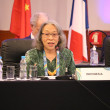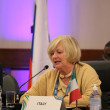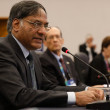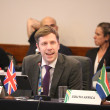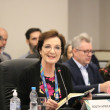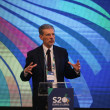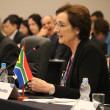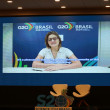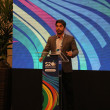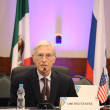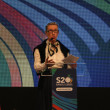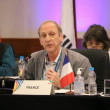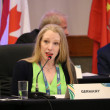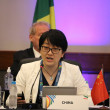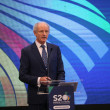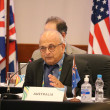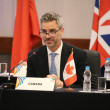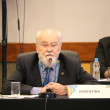S20-Science for Global Transformation
TÜBA President Prof. Muzaffer Şeker and TÜBA Full Member and President of the Association of Academies and Societies of Sciences in Asia (ASSAA) Prof. Ahmet Nuri Yurdusev attended the 8th Science20 (Science20-S20) meeting organized by the Brazilian Academy of Sciences with the title "Science for Global Transformation".
 The S20 meetings, which have brought together the national science academies of the G20 countries since 2017, discussed issues such as artificial intelligence, bioeconomy, energy transformation process, health problems, social justice in line with the principle of "Building a Just World and a Sustainable Planet" determined by the Brazilian government for the G20 for 2024. Ethics, social impact, regulation and information sharing, sustainable world, renewable energies, social and economic considerations, quality, equity and access, promoting inclusion, ending poverty and reducing inequalities were discussed.InterAcademy Partnership, International Science Council (ISC), The World Academy of Sciences (TWAS), Inter-American Network of Academies of Sciences (IANAS), AASSA took part in the meeting as international observer umbrella organizations.
The S20 meetings, which have brought together the national science academies of the G20 countries since 2017, discussed issues such as artificial intelligence, bioeconomy, energy transformation process, health problems, social justice in line with the principle of "Building a Just World and a Sustainable Planet" determined by the Brazilian government for the G20 for 2024. Ethics, social impact, regulation and information sharing, sustainable world, renewable energies, social and economic considerations, quality, equity and access, promoting inclusion, ending poverty and reducing inequalities were discussed.InterAcademy Partnership, International Science Council (ISC), The World Academy of Sciences (TWAS), Inter-American Network of Academies of Sciences (IANAS), AASSA took part in the meeting as international observer umbrella organizations.
Starting his speech at the program by emphasizing that "Science for Global Transformation" is not just a call to action, President Şeker said, "It is a reminder of the responsibility we share as members of the global scientific community. It is a testament to our collective effort to harness the power of science and technology for a sustainable and equitable future."
He stated that the world is at a critical juncture in human history where the decisions and steps taken will shape the legacy that will be left to future generations. He said the world is grappling with unprecedented challenges such as "climate change, health inequalities, energy crises and the widening inequality gap", but that within these challenges lie enormous opportunities.
TÜBA strives to be the voice of truth in the world.
Underlining that TÜBA believes in the power of collaborative innovation and the importance of sharing knowledge and resources, Şeker said: "As TÜBA, we focus on Information Technologies; Environment, Biodiversity and Climate Change; Energy; Health Sciences and Technologies; Sustainable Development and Finance. In the field of artificial intelligence, we advocate an ethical framework that prioritizes human dignity and social welfare. Advances in AI should be a ladder that everyone can climb, not a barrier that divides us. We envision a future where AI serves as a tool to eliminate divisions, increase access to education and healthcare, and foster a more inclusive society. Turning to bioeconomics, TÜBA is committed to promoting sustainable practices that leverage our rich biodiversity for economic growth and environmental protection. We recognize the critical role that sustainable agriculture, renewable resources and green technologies play in building resilient economies and combating climate change. The energy transition is another area where science and policy must come together to create effective change."
Noting that TÜBA strives to be the voice of truth in the world, President Şeker said, "We continue our efforts to raise awareness about the humanitarian crisis in Palestine at the hands of Israel, as in the Russian-Ukrainian War. We find it alarming that senior leaders of some countries and representatives of national scientific academies have made statements in support of Israel, far from the principle of political and scientific neutrality. We regret that, with very few exceptions, the world scientific community has made no effort to oppose this inhumane massacre and systematic occupation of Palestine. For this reason, we have shared our Report on the Palestinian-Israeli War with over 800 scientific academies and organizations. However, unfortunately, we witness that the majority still remain silent while academics are killed and universities are destroyed in Palestine. It is worrying that political circles and scientific institutions do not show the same solidarity and understanding for Palestinians that they showed during the occupation of Ukraine. It is unacceptable that universities and other scientific institutions, which should be centers of free thought, are suppressed by power groups and lobbies. Science and technology are powerful instruments of change that can revitalize communities and remove barriers to equality. But in the absence of scientific impartiality, the advancement of science and technology will only serve power groups, not the common good of the whole world."
Science20 is a working group of the science academies of the G20 countries, working to provide leaders and the world community with a scientific basis for policies, and a platform for the collaboration of scientists and institutions across the G20 countries. Science20 aims to help G20 leaders make the best use of science and technology and provides guidance to G20 leaders on scientific and technological issues.



